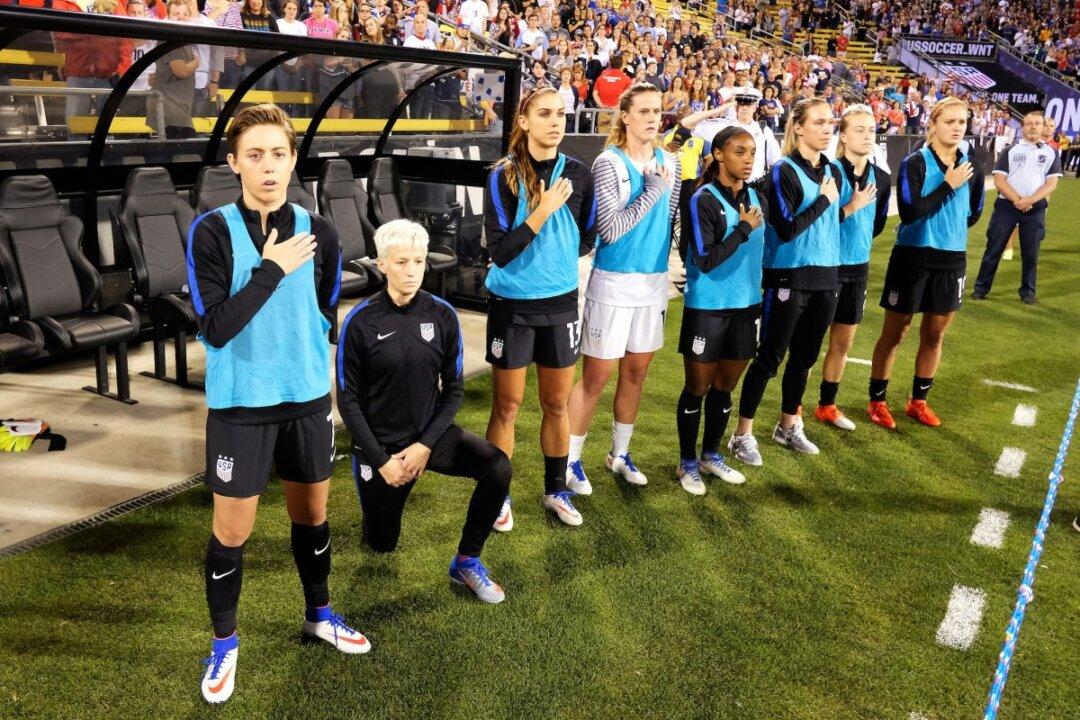The United States Soccer Federation’s (USSF) national council has voted to repeal a policy that required players to stand for the national anthem.
More than 70 percent of the members of U.S. Soccer’s ruling body voted on Feb. 27 to repeal Policy 604-1, which was originally adopted by the USSF in 2017. The policy stated, “All persons representing a Federation national team shall stand respectfully during the playing of national anthems at any event in which the Federation is represented.”





